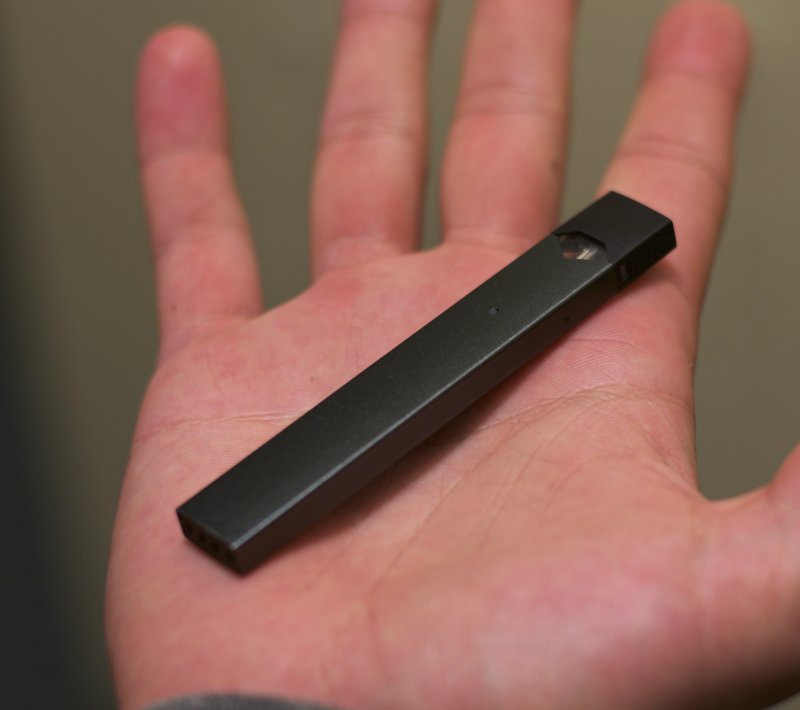Many of the devices used to consume e-cigarette products appeal to teens because they're easy to conceal, like the Juul e-cigarette which looks like a USB flash drive. Photo by Mylesclark96/Wikimedia Commons
Dec. 18 (UPI) -- To curb the rising use of e-cigarettes among children, U.S. Surgeon General Vice Adm. Jerome M. Adams has sent out a public warning about the risks of vaping.
"We need to protect our kids from all tobacco products, including all shapes and sizes of e-cigarettes," Adams said in a news release. "Everyone can play an important role in protecting our nation's young people from the risks of e-cigarettes."
Past 30-day e-cigarette use among high school kids grew by more than 75 percent, and within the middle school ranks by 50 percent, between 2017 and 2018, according to data from the Centers for Disease Control and Prevention and the Food and Drug Administration's National Youth Tobacco Survey. That includes more than 37 percent of high school seniors.
Many of the devices used to consume e-cigarette products attract teens because they're easy to conceal. The Juul e-cigarette, for example, looks like a USB flash drive.
Juul currently has a 70 percent share in the cartridge-based e-cigarette market in U.S. An e-cigarette cartridge, or pod, can hold the same amount of nicotine as a regular pack of 20 cigarettes.
The CDC says that nicotine can harm the brain development of young people. Still, nearly a quarter of Juul's Twitter followers are younger than 18 years old.
One study even showed that more than 35 percent of children reported going to the hospital after consuming liquid nicotine used in e-cigarettes.
"In the data sets we use, we have never seen use of any substance by America's young people rise as rapidly as e-cigarette use is rising," said Alex Azar, secretary of the Department of Health and Human Services. "Combustible cigarettes remain the leading cause of preventable death in the United States, and providing an effective off-ramp for adults who want to quit using them is a public health priority. But we cannot allow e-cigarettes to become an on-ramp to nicotine addiction for younger Americans."
From 2016 to 2017, sales of Juul e-cigarettes shot up by 641 percent.
Recognizing the potential health dangers, the FDA sent out 1,300 warning letters to stores selling Juul and other e-cigarette products to minors. Many of those products imitate candy, cookies and juice boxes.
In anticipation of an even harder FDA crackdown, Juul shut down its social media campaigns and stopped selling flavored pods in certain stores in November.
Days later, FDA sanctions followed. The agency restricted sales flavored e-cigarette pods to in-person stores and called on all online retailers to strengthen their systems for verifying age the age of customers.
Even with the sanctions, the health risks of e-cigarette still remain a concern. One study says daily vaping can double the risk of heart attack.
"We have evidence-based strategies to prevent tobacco use that can be applied to e-cigarettes," Adams said. "We must take action now to protect the health of our nation's young people."















